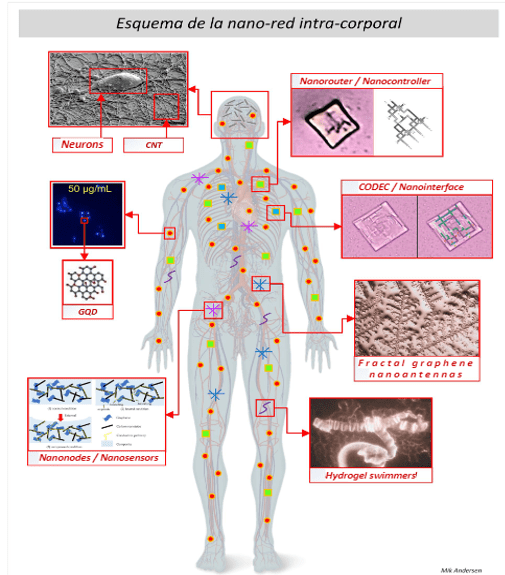Yes, wearing a mask really does work to reduce the spread of COVID-19, according to a new comprehensive review published October 31, 2023, in JAMA Network Open.
After analyzing more than 40 studies conducted with seven different methodologies, the evidence was clear: Masks can reduce the risk of spreading COVID-19 and of being infected by COVID-19, says coauthor Tom Frieden, MD, president and CEO of Resolve to Save Lives and former director of the Centers for Disease Control and Prevention (CDC).
Resolve to Save Lives is a not-for-profit organization partnering with countries, communities, and organizations to prevent deaths from heart disease and epidemics.
“If the pandemic taught us anything, it’s that an infectious disease can spread around the world quickly. Preparedness and effective public health responses are key,” says Dr. Frieden.
Given the likelihood of future pandemics and the staying power of COVID-19, it’s important to understand the effectiveness of available interventions to limit the spread of disease, he says. “Masks are a critical tool that can reduce the spread of SARS-CoV-2, as shown by multiple robust studies during the COVID-19 pandemic. Like any intervention, they are just one of several measures that are needed — but masks are an important tool to prevent infections, protect healthcare workers and the public, and save lives,” he says.
In addition to saving lives, masking can also keep business (and the people depending on their jobs and insurance) afloat. Hard shutdowns on the economy and closing of schools have huge negative consequences, says coauthor Stephen Luby, MD, a professor of medicine and infectious disease physician at Stanford Medicine in California. “Mask wearing, by contrast, still permits people to come together and societies to thrive,” he says.
Mask Mandates and Inventions Reduced the Spread of COVID-19 and Lowered the Risk of Infection
The included studies generally compared outcomes related to SARS-CoV-2 infections among people who masked in various settings versus those who didn’t mask. No modeling studies were included in the review, says Frieden.
A few highlights from the studies that showed the effectiveness of masks include:
Why Is There Still Debate About Masking?
Questions about wearing a mask and its effectiveness became politicized in many parts of the United States. In general, polling and research suggested that conservatives held stronger beliefs against mask wearing compared with liberals, according to a study published in June 2023 in Scientific Reports.
The World Health Organization (WHO) and the CDC are in agreement that masking continues to be beneficial in many situations. The WHO recommends wearing a mask following a recent exposure to COVID-19, when someone has or suspects they have COVID-19, when someone is at high-risk of severe COVID-19, and for anyone in a crowded, enclosed, or poorly ventilated space.
The latest guidance from the CDC recommends that both vaccinated and unvaccinated people wear masks in public indoor settings when the COVID risk to your community is high or if you are sick or caring for someone who is sick.
Recent Review of Randomized Controlled Trials Questioned the Efficacy of Masks
But not all respected health organizations or sources seemed to be reading from the same page — the widely-cited findings from a Cochrane review published in January 2023 concluded wearing a mask may “make little to no difference in how many people have flu/COVID confirmed by a laboratory test.” The study included only randomized controlled trials for the analysis, and it also combined studies that looked at COVID-19 and the flu.
The high risk of bias and relatively low adherence with interventions during the included studies “hampers drawing firm conclusions,” the authors of the review wrote, adding that there were very few studies that have looked at the effectiveness of masks.
The authors called for large, well-designed randomized controlled trials (RCTs) to examine the benefits and drawbacks of various interventions, including masking.
Many Types of Studies Should Be Including When Evaluating Masks
Using only RCTs to evaluate the efficacy of masks during a pandemic is a mistake for a few reasons, says Dr. Luby.
“Different studies provide different types of insight, and for major public health interventions, observational studies are particularly important,” he says. In the case of masking, researchers can look at the implementation of different policies and evaluate the differences in outcomes, he says.
Laboratory studies are important to understand the theoretical filtration efficiency of masks, and modeling studies can help provide insight on how various strands of evidence are best summarized, says Luby.
“Optimal scientific inference is achieved through a process of considering a large breadth of evidence, and then identifying the best explanation that accounts for all of the available evidence. It is a mistaken, narrow-minded intellectual rut to believe that only one type of evidence is relevant,” he says.
Why Aren’t There More RCTs Looking at Masks and COVID-19?
In a pandemic caused by a lethal respiratory virus, it is difficult to find a setting in which it is ethical and feasible to randomize people to masking versus no masking, the authors wrote. Additionally, the time needed for RCTs to be funded, designed, and implemented further limits their feasibility during public health emergencies, they added.
Frieden acknowledges that there is more to learn, and that the protection they provide “isn’t perfect.” “For people who are ill or who have been exposed to COVID and may have asymptomatic infections, wearing a mask protects others,” he says.
How to Get the Most Benefits From Wearing a Mask
Key evidence-based takeaways from the paper include the following:
Masking Should Play an Important Role in Future Pandemics
We will face future pandemics, says Luby. “Understanding the whole of the current evidence base that demonstrates the effectiveness of masks for interrupting respiratory virus transmission will provide important guidance for these future threats,” he says.
Masking with the highest-quality masks that can be made widely available should play an important role in controlling whatever pandemic caused by a respiratory pathogen awaits us, says Frieden.
This content was originally published here.

















![30 Day Squat Challenge [Home Exercise]](https://thehealthandwellnesscrier.com/wp-content/uploads/2023/07/30-Day-Squat-Challenge-Home-Exercise-768x432.jpg)


